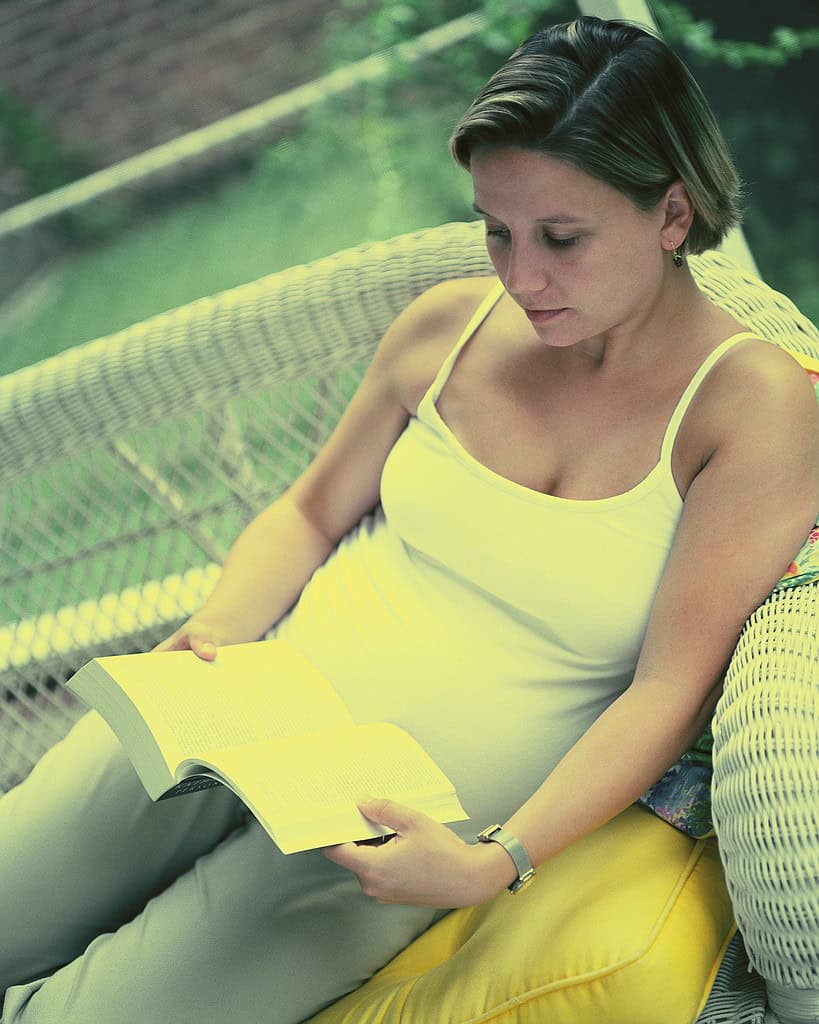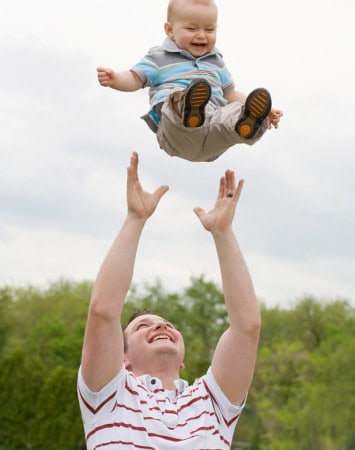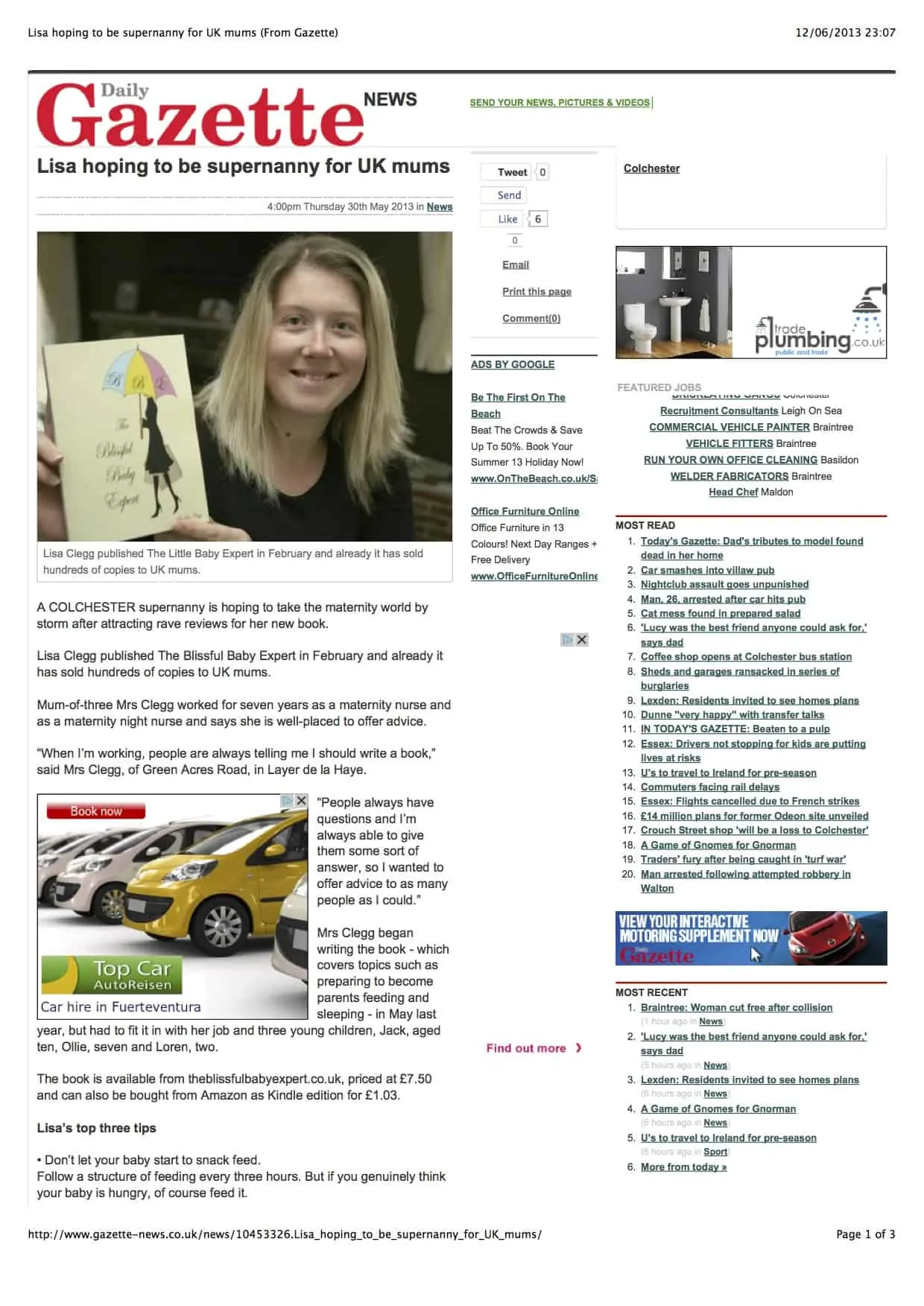Publications
Website Publications
Publications

Advice and health
Should you top up breast milk with formula?
BY ELEANOR TUCKER
Getty
A recent study claims that ‘topping up’ with a small amount of formula can increase the length of time babies are breastfed. The US study found that when underweight newborns were given both formula milk and breast milk immediately after delivery, 79 per cent of their mums were still breastfeeding at three months.
Of those babies who were initially only having their mum’s milk, just 42 per cent were still being nursed at the same age. The findings suggest that if mums are able to supplement their feeding routine with formula, they are more likely to persevere with breastfeeding.
So, to top up or not to top up?
YES says Lisa Clegg, maternity nurse and author of The Blissful Baby Expert (Amazon), Theblissfulbabyexpert.co.uk.
“Although breastfeeding and the amount of milk a mum produces is usually based on a supply and demand basis, I’ve found this is not always the case and sometimes formula top-ups are needed.
“I’ve worked with some mums who can be sitting breastfeeding for an hour or more, and their baby is still crying with hunger afterwards. In these scenarios the mum is producing some milk but just not enough to satisfy the baby’s hunger fully, so I encourage them to offer a formula top-up after a full breastfeed.
“It may be that a formula top-up is only needed after one or two feeds. In offering these top-ups, the baby will feel more satisfied and so will the mother. One of the biggest worries that a breastfeeding mum has is that their baby may not be getting enough. Most of the time these fears can be reassured by the fact that the baby is having lots of wet nappies, feeds well, seems satisfied after a breastfeed and is happy between feeds.
“This scenario is common for many mums
What to expect
Birth plans
It is a good idea to make a birth plan with your preferences in terms of labour positions, any pain relief you are happy to have and what you would like to happen after the baby is born. You can find examples on the internet/NHS website to give you an idea of what information is needed. Pack it into your hospital bag and make sure your midwife is aware of it when you arrive-it can be kept with your maternity notes that you hand to her on arrival.
The biggest piece of advice I can give you about labour and giving birth, after having 3 children of my own, is to expect the unexpected and be prepared for your birth plan to change at short notice.
None of us know how we are going to react to the circumstances and pain that is involved with labour and giving birth. We all know what we would like to happen, and how we hope that we can labour quickly and easily, without any pain relief at all, and give birth to a healthy baby at the end of it all without batting an eyelid! However, we all have different pain thresholds, and none of us know how our bodies will cope with labour-particularly first time round. In terms of pain relief it is best to just see what happens and go with the flow a bit. You will know if and when you get to the point of needing some form of pain relief-either to just take the edge off the pains, or take it away all together.
I made a birth plan with my first baby stating that I would be happy to use the tens machine at the start and then gas and air if the pain became too much-I also specified that I would prefer not to have Pethidine or an Epidural at all……I ended up having 2 doses of Pethidine, an Epidural and an emergency c-section after 14 hours in active labour-6 of those stuck at 9 and a half cm dilated with contractions every 2 minutes! Needless to say, I didn’t even bother making a birth plan for my next 2 children! Your instincts over what you want and need at the time will take over and get you through it all.
You haven’t failed if you don’t stick to your original birth plan-you have simply adapted to the circumstances surrounding you at the time. There are no prizes for going through all that pain with no help-the important thing is that you and the baby come out of it healthy and relatively unscathed at the end.
Top tip: Labour can be very intense and obviously painful. I was so shocked as I looked down at my first born a couple of hours after he was born and thought, “that was so awful that I am NEVER doing that again,” and at the time I was sure that I meant it without any doubt! I felt so sad looking at my baby boy thinking that he would have to now be an only child, as I wasn’t prepared to go through that type of experience again, when previous to my labour I had always said I wanted at least 2 children. It is amazing how quickly the mind forgets though, as just 1 month later I was saying, “well, when we have the next one…” much to my husbands surprise, who thought we were stopping at 1!
I have found the scenario I just described is normal for EVERY new mum I have talked to. We all go through a few days or weeks after the birth resolutely stating that we will not have any more children-but most mums tend to change their minds. Nobody warned me of these feelings and they terrified me as I felt so strongly about it at that moment in time, and determined that I would never have another child. I also felt very sad at the same time. Because of this, I always try to warn friends and clients that this will be a perfectly normal feeling to have straight after your baby is born, and that for most of us, it won’t last! As painful as labour and birth is, our babies and children bring such love and joy to our lives from the day they are born, that any amount of pain is worthwhile!
C-sections, Ventouse, Forceps delivery
This is not something you can really plan ahead for too much, as we all pray for a straightforward labour or birth. If you have had problems in pregnancy and are already booked in for a Caesarean section, then you should have already been given all of the information and facts about how and when it will happen. It is a good idea to ensure you have a family member or friend who can step up and help out with childcare if you already have other children, in the event that you have to stay in hospital longer than planned. Always pack your hospital bag to cater for at least one overnight stay, and make sure that your partner or someone else knows where to find any extra items that may need to be brought to hospital for you or the baby if needed. Don’t be afraid to ask questions at your antenatal appointments about things you may be concerned about.
Breast or bottle feeding
If you plan on breastfeeding then you won’t need to take anything into hospital in terms of feeding equipment. As mentioned in the hospital bag items list, just ensure that you pack a couple of nursing bras, and some night-shirts that open at the front easily.
If your choice is to bottle feed your baby, then you will most likely need to take bottles and some cartons to the hospital with you, as most Maternity wards do not provide them any more. It is something worth checking with your Midwife about. The ward will have a room (usually called the ‘milk kitchen’), where you will be able to sterilise and make up your babies’ bottles until you are discharged.
Written by Lisa Clegg, author of the recently published book ‘The Blissful Baby Expert‘.
– See more at: https://essexbaby.co.uk/what-to-expect/#sthash.EeFpSUDH.dpuf

The Blissful Baby Expert- An Interview With Lisa Clegg
Posted by thebabyspotca on Jul 4, 2013

@blissfulbabyexp
It is rare when an author will go out of his or her own way to connect with their readers. However, every so often you have a great author who specializes in a field who not only has years of experience, but is willing to connect, relate and share with their readers. When thebabyspot.ca connected with The Blissful Baby Expert author, Lisa Clegg, we knew she was not only an informative author but a person who takes the time to connect with her readers. We were happy to sit down with Lisa, a former maternity nurse (who no doubt has seen it all!) who shares her wisdom with new and seasoned parents alike and puts their fears at ease.
Q:Lisa, after years of being a maternity nurse, what made you decide to write The Blissful Baby Expert?
I have been wanting to write my book for a long time. So many mums that I have worked with have said to me ‘you should write a book!’ All of the things that I have learnt over the years working with hundreds of babies, as well as having my own 3 children have just been stored in my head, waiting for the right time to give each mum a certain piece of information. Mums kept on saying to me that I should put everything I have learnt in a book, because they would all love to have it to refer to, both while I am working with them and their babies, and also once it is time for me to move on to the next family.
I have been so busy with work over the last couple of years and have had to frequently turn extra work down because there are just not enough hours in the day or days in the week for me to help as many people as I would like. I realised that if I could write down everything I have learnt in a book, then mums would be able to use it to implement the advice themselves without me physically needing to be there. I also then offer FREE email advice to any mum who needs it, so that they can ask me for extra advice.

Q: You are like the baby whisperer, can you tell us what it was like to grow up and be around so many babies?
I grew up the 4th eldest of 26 grandchildren, so I have been surrounded by babies and young children from a young age. I’ve always been particularly interested in small babies and I was always the one who volunteered to take any babies off my aunts and uncles hands at family get togethers and parties. I would happily feed them, change their nappies and walk them around for hours. Everyone said I had a natural instinct with babies and I just find them easy to understand.
Q:Many of your raving reviews state that the book is easy to read and more of a companion that gives support rather then dictating directions. How important was it to you to connect personally with your audience?
Very important. I love reading and for me a book has to grab my attention within the first chapter or so to make me continue to want to read it. I always get on very well with all of the mums that I work with, so I began writing the book as if I was just chatting to another mum who was asking me for my advice and opinion. I think its very easy for a mum to connect with another mum if they know the other person has been, or is going through a similar experience to them. So many parenting books are written by experts who have lots of experience professionally, but no personal experience with children of their own. It is not until you go through certain experiences yourself that you truly understand and can empathise with other parents.
Q: What are some common misconceptions parents have about their newborn?
*That their baby will eventually fall into a wonderful routine and start sleeping through the night with no direction
*That if they keep their baby awake for a lot of the day they will be so exhausted they will sleep better at night
Both of these are highly unlikely-the ability to sleep well is a gift that needs to be taught.

Q: Your book is non judgemental when it comes to breast feeding verses formula feeding a baby. Why did you (unlike most books of your genre) give both sides of the feeding spectrum?
The choice to breastfeed a baby is a completely personal choice for each mum. In my experience it is something that mums feel very strongly about doing or not doing. Caring for a baby should be a happy experience and if a mum clearly doesn’t wish to breastfeed then she should never be made to feel guilty about formula feeding, when she feels that is the right decision for her family circumstances.
Q: How important is routine with a newborn for a new mom and dad?
Establishing a routine can help you feel more in control of what is happening on a day to day basis and keep sleep deprivation to a minimum rather than becoming overwhelmed by it! A routine gives the main carer and the baby a daily structure, which makes life a lot easier and happier for everyone in the long run. The baby will be happier because she never gets a chance to become overtired and irritable, she will be fed regularly during the day, and will be getting the correct amount of stimulation. The parent, in turn, is happier because having a routine means other things can be planned to fit in around feed and sleep times. Achieving small things like having a shower, hanging some washing out, without feeling totally stressed out is not as easy if your baby is not in a routine. Most babies generally find their own routine eventually, but much later on when they are older. To get to that stage would have likely been a long haul of more sleep deprived nights and fractious days than are necessary. Babies simply don’t need to be so unhappy.
Q: What made you originally decide to be a maternity nurse?
I discovered the title of Nightly Maternity nurse by accident really after my 2nd baby was born. I was browsing through a well known childcare website in the UK and although I knew that some parents employed Maternity nurses to come and stay with them full time and live in after their baby is born, I didn’t realise it was possible to employ somebody purely to just do the nights-allowing them the crucial part of the day covered, so that they could get some sleep. Having just gone through the sleepless nights myself with my 2nd baby, I knew first hand how torturous it can be when you feel like you will never get a full nights sleep again. A good nights sleep means you feel like you can cope with anything during the day! I began to do the odd part time nightly contract and realised just how much I loved the experience. The hours that I worked also fit perfectly with our own childcare, as my husband was always home at night to look after our 2 children at the time. The rest, as they say, is history and has brought me to where I am today!
Q: Your book is really “how to” and gives great advice on solving problems. Thebabyspot.ca loves how honest this book is to new and expecting parents. Why did you take the book in such a raw, honest approach?
As parents I think life with a new baby is much easier if you go into it with your eyes wide open, and armed with as much information as possible. You need someone to advise you in a non judgemental way, but to be as honest as possible-even if that means that you hear things that may scare you. I think that the mums who have read my book so far are finding that my honesty means they can empathise with me even more-I’ve worked with hundreds of babies professionally, but on a personal level I have experienced the same struggles that they do with their own babies.
Q: Our favourite section was on night feeding. How did you learn to give new moms tips on a more manageable night feeding time?
The nights are intricately linked to the daytime feeding and sleep routine. I always advise mums that you need to establish a good daytime routine before you can even begin to work on the nights. I have learnt that from the many babies I have worked with as well as my own 3 very different babies.
Q: We like that you promote your readers to be non –judgemental of each other. Why do you think so many mothers are in competition with each other?
For the majority of parents from the day their baby is born, they look down at them and think they are the most beautiful, incredible baby that has ever been created-better than their best friends baby(no matter how cute he/she is), and far more wonderful than their nieces or nephews(no matter how much they love them). It is a natural parental reaction to compare their baby/child with every other baby of the same age from that moment onwards. Even if you don’t compare verbally, mentally you will be doing it, everytime a friend or relative tells of their own babies achievement. It’s human nature to make these comparisons as we all want the best for our children and want them to be happy in life and reach their full potential.
Although this is normal, I do always stress to the mums that I work with and the readers of my book that all babies are individuals and will all reach the developmental milestones at different ages-patience and perseverance means they usually all get there eventually.

You can buy Lisa’s book on Amazon.
How can your North American readers buy this very important book?
My book THE BLISSFUL BABY EXPERT is available to download from www.amazon.com for $1.56
You do not need a KINDLE. As long as you download the kindle app to any APPLE device, Android, laptop MAC or PC, then Amazon will deliver the book to your device wirelessly.
I offer FREE EMAIL ADVICE to mums who need it. They can contact me at[email protected] Follow me on Twitter: @blissfulbabyexp Or search for my Facebook page or Group The blissful baby expert

The Blissful Baby Expert!

